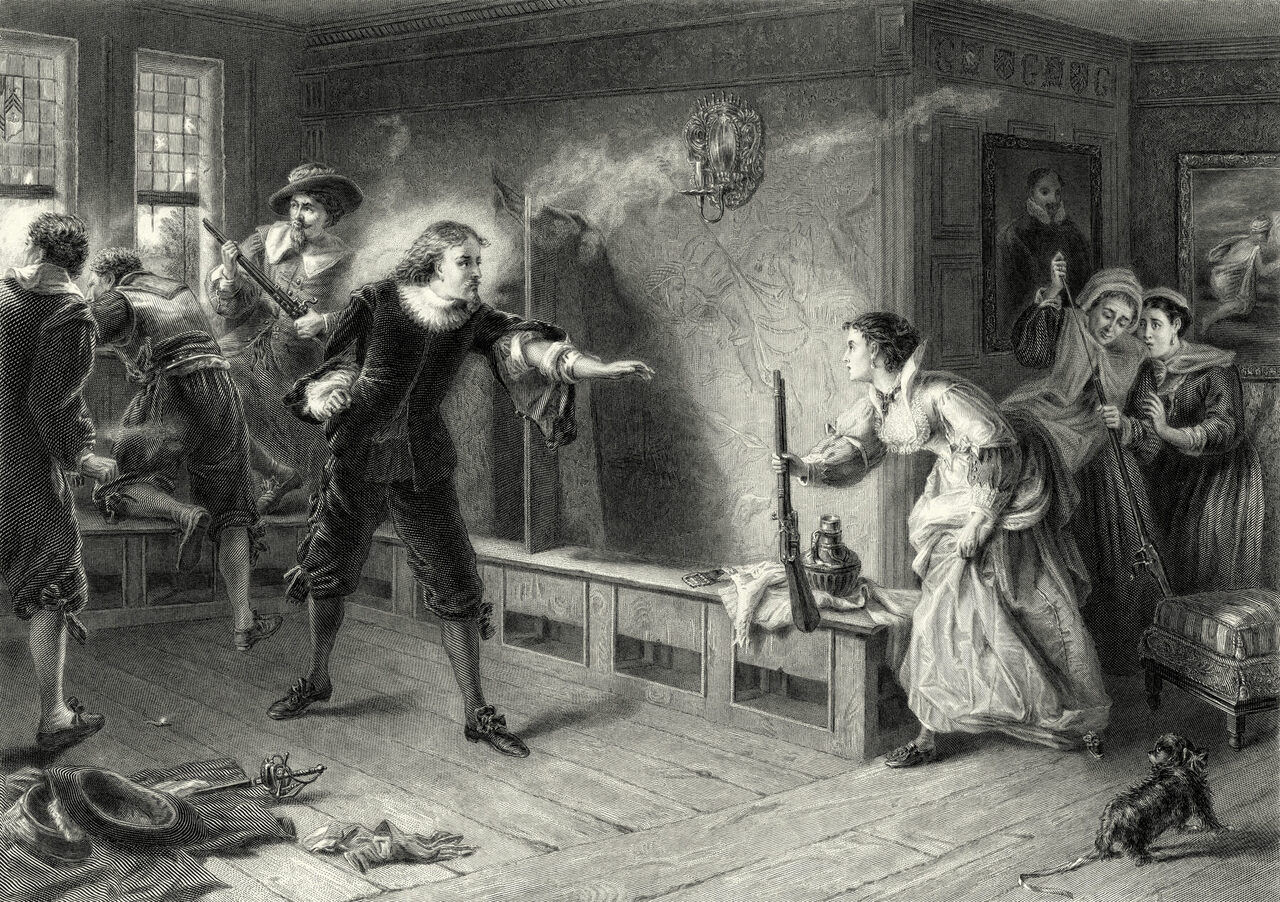Women were effective spies partly because they were below, rather than beyond, suspicion. “It was believed that women were physically incapable of having political thoughts,” says Akkerman. Spymasters on both sides exploited that stereotype by using women intelligencers to write and pass coded letters, sometimes smuggled within raw eggs or written in artichoke ink. However, by the start of the Restoration in 1660, with England again a monarchy and the upheaval of the wars fading, Akkerman says the number of women agents shrank.
The end of the war appears to mark a return to the status quo for women, including those who had fought and spied, but Stoyle believes women’s roles during the English Civil War may have helped shift societal attitudes towards women, at least a notch. “I think it sets some seeds in the wind that never really disappear,” he says.
As for Trooper Jane, she did not live to see the return of the monarchy she had fought to save. She spent her final years working on a nearby farm, possibly to help pay off Parliament-imposed fines on her Royalist family. She died of unknown causes and was buried at Ripley on December 20, 1651. She was 50 years old. “The Civil War undoubtedly hurt,” says Ingilby, reflecting on the courage he believes Jane showed while helping her brother avoid capture and execution. Says Ingilby: “Of all the virtues you can be born with, the virtue of survivability is worth a hell of a lot.” (Read more.)
I Love Lent
8 hours ago


















No comments:
Post a Comment